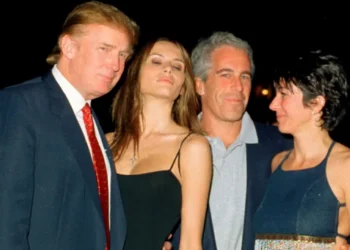BEIJING (Realist English). A palm-sized, scruffy-looking elf has turned Pop Mart, a Beijing-based toy company, into a global phenomenon. The brand’s star character Labubu — described as “ugly-but-cute” — has triggered stampedes in stores, driven nearly $2bn in annual sales, and helped Pop Mart surpass the combined market value of US giants Mattel and Hasbro.
Sold primarily in “blind boxes”, Labubu has become a viral hit on TikTok and a collector’s craze worldwide, with fans queuing outside Pop Mart outlets from Paris to Seoul. In some cases, fights have erupted over new releases, and resale prices for rare dolls have tripled. At a recent auction in Beijing, a human-sized Labubu sold for Rmb1.2mn ($165,000), including fees.
Celebrities such as Dua Lipa, Rihanna and Lisa of Blackpink have been spotted with miniature Labubu charms, helping propel the toy from cult status to fashion accessory. The character’s appeal, analysts say, taps into a shift in youth culture toward quirky, rebellious designs over polished cuteness.
“It’s like a universal language,” said Jason Yu, Greater China managing director at Kantar Worldpanel. “Labubu reflects a desire for something more emotionally expressive, especially among younger generations who grew up without siblings.”
Founded in 2010 by Wang Ning, Pop Mart has pursued rapid global expansion. By the end of 2024, the company had 130 stores and nearly 200 vending machines outside mainland China, along with distribution through Amazon and TikTok. Overseas sales now account for 39% of total revenue.
The company’s stock has surged more than sixfold in the past year, driven by demand for its Monster range — which includes Labubu — and other characters like Crybaby and Molly. But the toy boom has a downside: Pop Mart has twice suspended in-store sales due to overcrowding and fights — most recently in London and Seoul.
Some observers warn the brand’s runaway success could be vulnerable to changing tastes. Jeff Zhang, an analyst at Morningstar, said long-term growth depends on developing new intellectual property. “Pop Mart will need to continue refreshing its lineup to avoid saturation,” he said.
Still, with the global toy market leaning into collectibles, fashion crossover, and emotionally resonant branding, Pop Mart appears well-positioned — for now. As Zhang noted, “The question is not whether it will fade, but whether it can evolve fast enough to stay ahead.”


















